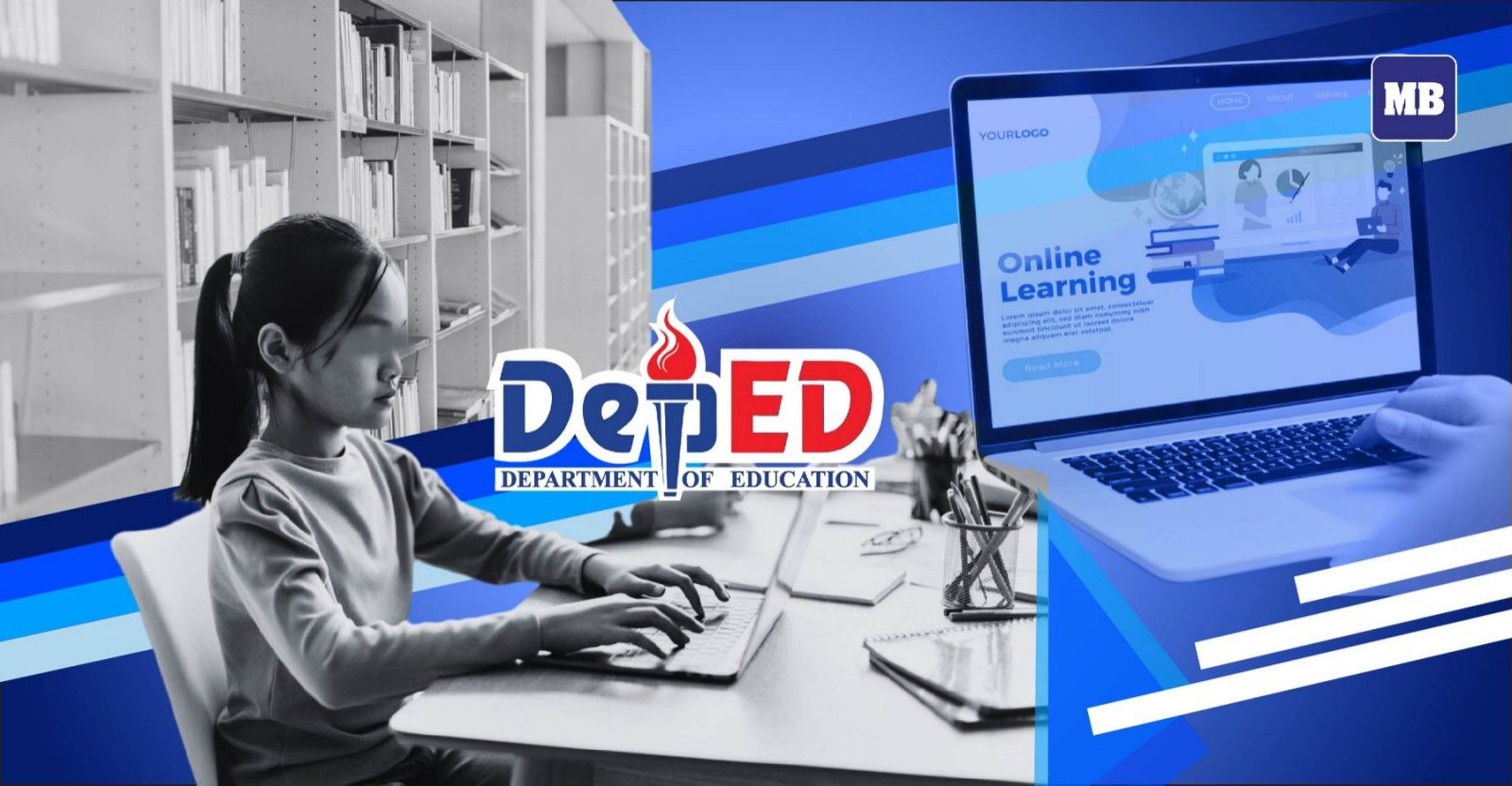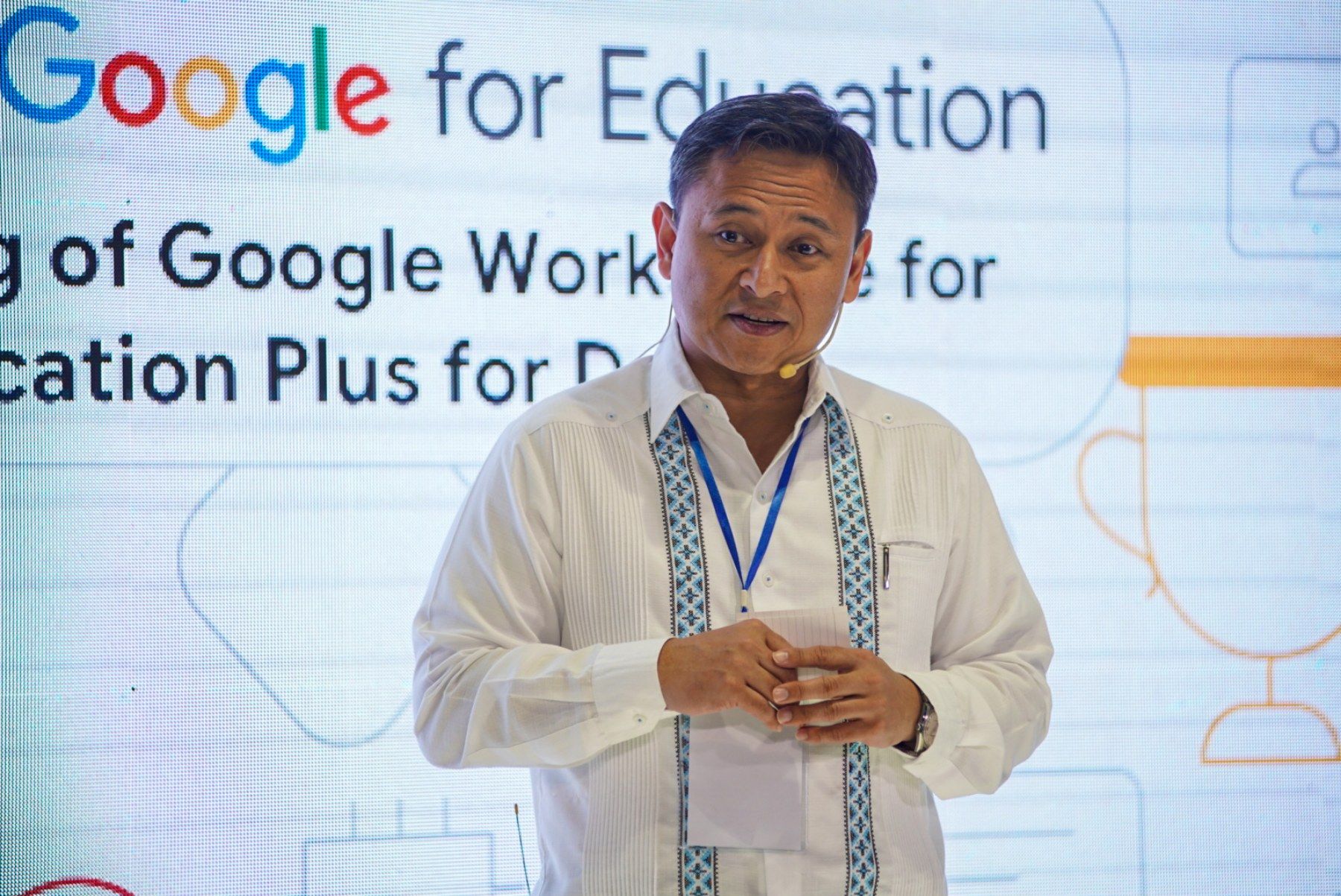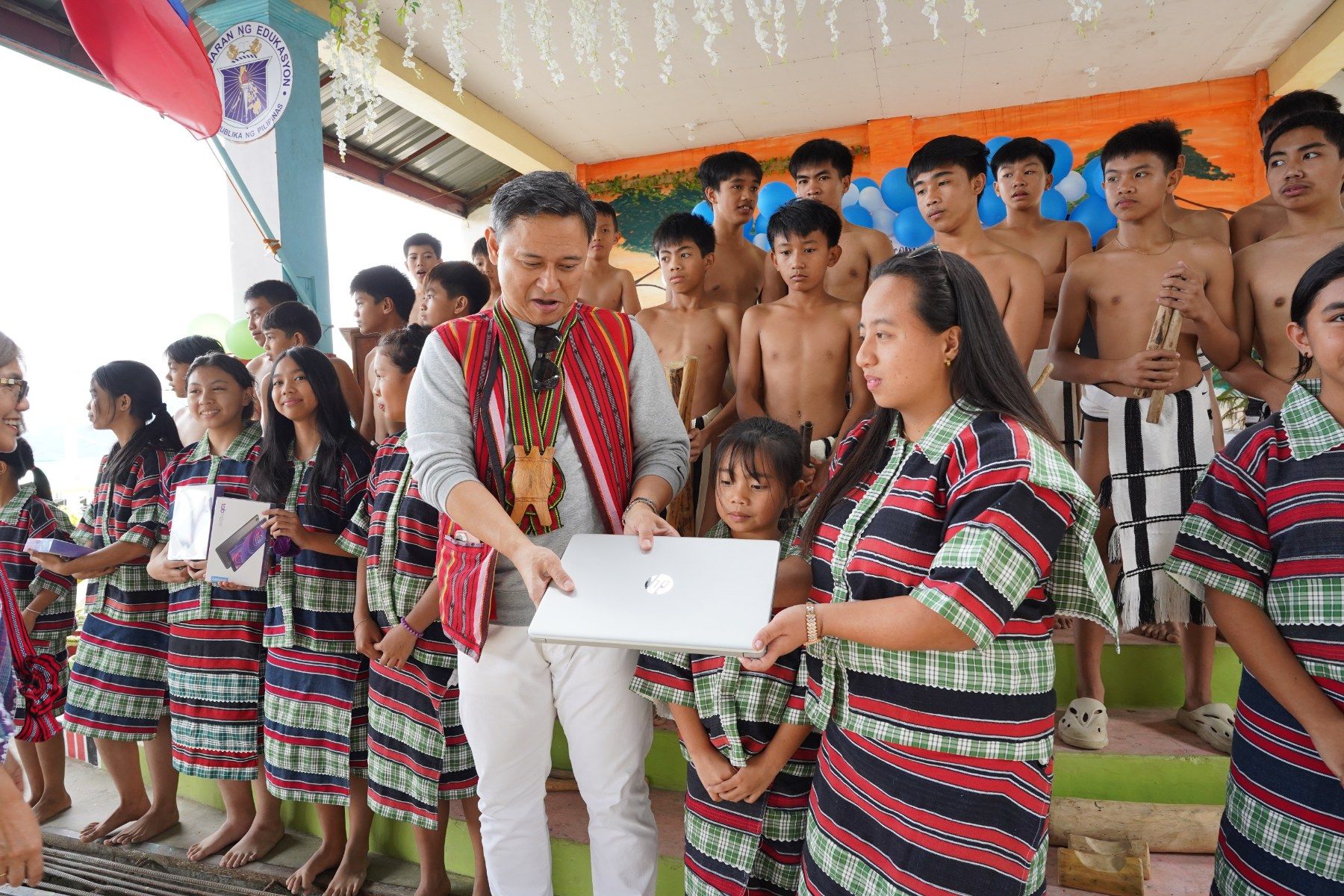DepEd reaffirms PBBM's commitment to school digitalization
The Department of Education (DepEd) has reaffirmed President Marcos' commitment to advancing school digitalization, emphasizing efforts to integrate technology in classrooms and enhance digital learning nationwide.

In a statement issued on March 11, DepEd highlighted its efforts under the DepEd Computerization Program (DCP) to address digital gaps in schools—particularly in Last Mile Schools.
Situation on the ground
DepEd shared the various challenges that last-mile and multigrade school teachers faced before the implementation of the DCP.
Teachers like Elizabeth Tovera and Juna Mirason from Jose Gonzales Elementary School (JGES), a Last Mile School in Benguet, dedicated most of their time to writing lessons on manila paper to use as visual aids for their learners, according to DepEd.
DepEd noted that multigrade schools like JGES combine two grade levels in one classroom. This setup, the agency added, requires “teachers to prepare separate lesson plans, visual aids, and student records—all previously handwritten and manually computed.”
However, DepEd pointed out that with laptops, tablets, and Smart TVs available in their school, “teachers can now create visual aids using design software,” saving time and allowing them to “focus more on lesson planning, which leads to improved student engagement and learning outcomes.”
Investing in the future
DepEd emphasized that, as envisioned by President Marcos, classrooms of the future should be spaces where “learners and teachers are empowered by technology.”
The agency has responded to this vision through the DCP.
DepEd shared that students like Ryzza Mae Mayomis, a Grade 6 student at JGES, noted how her tablet has become “essential for her assignments and projects.”
Since acquiring this gadget, DepEd observed that students like Mayomis feel “empowered” to take on their daily classes.
Mayomis said the gadget is helpful, especially when they have lessons and assignments that require research.
Aside from making the lives of teachers easier, DepEd said the DCP’s priority is to provide learners with “better access to technology, which enhances the learning experience in schools.”
DepEd acknowledged that despite the budget cut for Fiscal Year 2025—which has severely affected the DCP—Education Secretary Sonny Angara underscored that the agency is still determined to fulfill its “commitment to connecting schools.”
Currently, DepEd said it is proceeding with the delivery of 64,816 laptops and smart TV packages worth P1.913 billion to 16 regions across the country under the DCP.
These packages, DepEd noted, are set to be delivered to schools by the second half of the year, in response to reports indicating that 39,972 (69.3 percent) schools have below-ideal student-to-device ratios.
Stronger connectivity
In addition to providing hardware to schools, DepEd announced that it has procured licenses for Google Education Plus.
This advanced platform grants access to Google’s productivity suite and enhances tools like Google Meet, Google Classroom, and AppSheet, DepEd explained.
DepEd said the launch of Google Education Plus on March 10 marked the agency’s "investment" in its one million teaching and non-teaching personnel through technology.

“This partnership with Google is not just a major upgrade; it’s proof that education, when powered by the right technology, can scale exponentially,” Angara said.
DepEd said its latest partnership will provide one million Google Workspace for Education Plus accounts for teaching and non-teaching staff, enhancing efficiency and productivity across the agency.
Teachers and personnel will also have the opportunity to collaborate through various platforms such as Gmail, Classroom, Calendar, Docs, Sheets, Slides, Forms, and Assignments, DepEd said.
Designed for teachers, Google Education Plus simplifies essential tasks such as attendance checking and grade computation.
It also includes integration with Khan Academy, further enriching the learning experience, DepEd added.
Last Mile schools
DepEd said that as JGES embraces technology in both teaching and learning, the mission of the DCP comes to fruition—connecting last-mile schools and overcoming their challenges.

Moreover, DepEd said it plans to build on the full promise of the DCP through partnerships with tech companies like Google.
In the faces of teachers like Juna and Elizabeth, DepEd said the DCP means improved learning outcomes because they can “finally maximize technology and new media in teaching.”
For Teacher Mirason, students are more encouraged to listen because they can see images using PowerPoint, and they understand the visual aids better.
DepEd emphasized that the DCP packages, based on these testimonies, are “more than gadgets”—they represent opportunities for teachers to teach better.
Tovera noted that before, classrooms were filled with manila paper and teachers spent a long time writing with a pen. Now, teachers use PowerPoint, and learners understand the visual aids better.
During the 2024 State of the Nation Address, President Marcos emphasized that "the depth and breadth at which these technologies will be transformative in our lives is fully expected."
He also highlighted the power of technology in Philippine classrooms.
For its part, DepEd, under Angara, expressed readiness to use its full mandate to pursue that “depth and breadth” until the last-mile schools are connected.